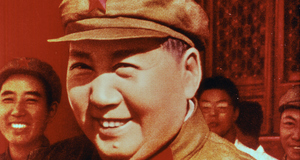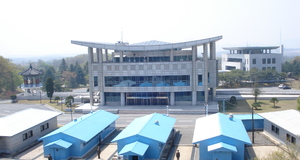|
From Cornell International Affairs Review VOL. 4 NO. 1 The Politics of Asian Regionalism in Korea: Identity Politics and Its Implications for U.S.-ROK Relations
By Kim Dae-Gyeong
Cornell International Affairs Review
2010, Vol. 4 No. 1 | pg. 2/2 | «
Compared to the leftists and progressives, South Korean conservatives rarely promote a pan-Asian vision that satisfies their desire for strong bilateral relations with the U.S. and relatively antagonistic sentiments towards the North. Most of all, it seems the conservatives have not yet heeded much attention to resolving the tension between the existing U.S.-led bilateral alliance system in the region and a prospective multilateral structure necessary for regional community building.22
Some news editorials’ comments on regionalist visions, such as the East Asian Community, present hawkish stances toward North Korea but not any serious discussion on the compatibility of regionalism with bilateralism. For instance, a 2009 editorial of Chosun Ilbo titled “For the East Asian Community not to be in vain,”23 argues that the denuclearization of North Korea is a prerequisite to the idea of an East Asian Community proclaimed by Japanese Prime Minister Hatoyama to be materialized. Meanwhile, the Asian policies of the current conservative government under Lee Myung Bak have been saved from the acrimonious identity politics that overwhelmed his predecessor’s vision of Korea as a regional balancer. Most of all, the conservatives’ focus has been on economic regional agendas instead of on subtle geopolitical strategies that might elicit identity conflicts and misperceptions. The rhetoric of “the hub of Asia,” for instance, which the Roh government frequently employed, reappears in the New Asian Policy (Appendix 2) only within the context of envisioning an expansion of bilateral FTAs in Asia.
Regional economic issues such as free trade, IT technology, cultural markets, coordinated responses to financial crises and climate change, comprise the major portions of the policy. Such relative absence of identity-driven geostrategic visions among the conservatives could be understood in President Lee’s promotion of pragmatism in diplomatic, as well as domestic policies. At the Asia Economic Community Forum held in November 2009 in South Korea, as a short response to my question about the difference between the Asian policies of the Roh and Lee governments, Grand National Party congressman Won Hee-Ryong remarked as follows;
“The essential difference between the current government and the Roh government is that the Roh government then referred to South Korea as a balancer of Northeast Asia and this concept of balancer attracted a lot of attention, fueling a controversy on whether this idea means a digression from the U.S.-ROK alliance. However, there is barely a difference in terms of actual policies. This (The Lee) government, however, approaches Asian policies more carefully and pragmatically.”24
“Pragmatism” was one of the key slogans of President Lee during his presidential election campaign in 2007. Promoting the image of the candidate as a non-ideological businessman (he is the former CEO of Hyundai), Lee’s election strategy aimed at appealing to a South Korean public who was already tired of acrimonious identity politics during the progressives’ ruling period. He promised to pursue domestic and foreign policies with realistic and pragmatic professionalism.
The U.S. policymakers and academia welcomed the inauguration of the conservative government as they believed President Lee would take a more cooperative and cautious course of diplomatic relations with the U.S., and would not engage in unnecessary gestures that might fuel divisive politics of identity. The Lee government’s regional vision, manifested in the New Asian Policy centered upon economic agendas, has accordingly been saved from any controversy, and the progressives and leftists have focused their energies almost exclusively on attacking domestic policies such as the Grand Korean Waterway project and inter- Korean relations.
Currently there is no consensus among South Korean leaders over what kind of long-term geopolitical strategy the nation should adopt to help construct a stable and prosperous order that corresponds to the mutual interests of major regional actors, including the U.S. The progressives’ promotion of a pan- Asian slogan that manifested South Korea’s heightened expectation to assume a more proactive role as a regional balancer failed to garner a unified voice internally and delivered confusing messages across the Pacific that the longtime ally desires to bandwagon with the new regional power, China.
Most of all, the progressive Roh regime’s failed regionalist proposition and the intense identity politics it fueled suggest that what South Korea needs at this time is a “compromise [among political elites] highlighting elements of identity that serve urgent goals”25, that include stabilizing the inter-Korean relations and promoting a peaceful regional order. Such a compromise must start with recognizing the significance of continued policy coordination between the ROK and the US to deal with North Korea and its Asian neighbors.
A survey result indicates that Asian elites in general prefer U.S. support for and involvement in the long-term vision of an Asian community and corresponding regional institution building,26 reflecting widespread concerns that an exclusive regional order might end up intensifying a rivalry structure between regional hegemons. In the face of escalating peninsular uncertainties amid the recent military ship sinking and the North’s own internal succession politics, South Korean leaders are realizing again the importance of working closely with the U.S. on crucial regional agendas.
For the progressives and leftists, it should be noted that a successful national strategy on regional politics rests upon a shared vision and coordination with the nation’s trustworthy allies. The conservatives, on the other hand, need to start spending their time and political resources on drawing a long-term vision that could promise panregional as well as peninsular stability.
Most importantly, for a regional community to be materialized in Asia, where the U.S.-led bilateral structure has guaranteed a balance of power, a creative resolution of a multilateral blueprint with existing bilateralisms must be pursued. The ideal path toward such a resolution would consist in facilitating the mutual interests of regional actors. The U.S. policymakers also need to recognize and encourage South Korea’s capacity to assume such a crucial role. As Rozman argues, South Korea is well qualified for a status “as the facilitator of regionalism in Northeast Asia that could reconcile serious differences in an area
- For detailed description and analysis of the “Asian values” discourses, see Mark T Berger, The Battle for Asia: From Colonization to Globalization (London and New York: RoutledgeCurzon, 2005) 174-197.
- “The Tilt Towards a New Pan-Asianism,” The China Post [Taipei] 14 July. 2008.
- Gi-Wook Shin, “Asianism in Korea’s Politics of Identity,” Inter-Asia Cultural Studies 2005, 6.4: 616-630.
- According to de Wilde, politicization is defined as “a process that makes issues part of politics.” The politicization of the Roh government’s regional policy visions will be discussed in this paper. Katzenstein et al, European Identity (Cambridge, New York: Cambridge University Press, 2009) 15.
- Despite the danger of oversimplification, as of May 2010, by the conservative I mean the supporters and politicians of either the Grand National Party or the Liberty Forward Party, by the progressive those of either the Democratic Party or the Participation Party, and by the left those of either the Democratic Labor Party or the New Progressive Party. To examine the Asianism of the progressive, the paper deals with the Asianist doctrines of the last Roh regime whose party in power was the Uri Party, a predecessor of the current Democratic Party and/or the Participation Party.
- Gi-Wook Shin, Ethnic Nationalism in Korea (Stanford: Stanford University Press, 2006).
- Peter J. Katzenstein, The Culture of National Security: Norms and Identity in World Politics (New York: Columbia University Press, 1996).
- Shin 2006, Gilbert Rozman, “South Korea’s National Identity Sensitivity: Evolution, Manifestations, Prospects” Korea Economic Institute Academic Paper Series. March 2009.
- Naoki Sakai, “Nationality and the Politics of the “Mother Tongue”” Deconstructing Nationality (Ithaca: East Asia Program, Cornell University, 2005), Rey Chow, “Preface” Women and Chinese Modernity: The Politics of Reading Between East and West (Minnesota: Minnesota University Press, 1991).
- Peter J. Katzenstein et al, Rethinking Security in East Asia: Identity, Power and Efficiency (Stanford: Stanford University Press, 2004). 9. Italics added.
- Thomas Berger, “Power and Purpose in Pacific East Asia: A Constructivist Interpretation,” International Relations Theory and the Asia-Pacific, ed. John Ikenberry et al (New York: Columbia University Press, 2003) 387-420. 391.
- Peter Katzenstein et al 2004. 169.
- Gi-Wook Shin, One Alliance, Two Lenses: U.S.-Korea Relations in a New Era (Stanford: Stanford University Press, 2006). 18.
- Peter Katzenstein et al 2004. 163.
- Administrative Office of National Security Council (NSC), Explanatory Document on Northeast Asian Balancer, 27, Apr. 2005, 19, Nov. 2009 , The Presidential Commission on Policy Planning, A New Thinking Toward an Era of Northeast Asia of Peace and Prosperity. Seoul: Republic of Korea.
- Chun-Suk Kang, “The Dreams and Reality of the Northeast Asian Balancer Thesis,” Chosun Ilbo 15, Apr. 2005. Print.
- Shin 2006. 218-219.
- Gi-Wook Shin, “Regionalism and Nationalism in Northeast Asia,” Cross Currents: Regionalism and Nationalism in Northeast Asia, ed. Gi-Wook Shin and Daniel C. Sneider (Stanford: The Walter H. Shorenstein Asia-Pacific Research Center, 2007). 20.
- Ibid. 219.
- Rozman. 5.
- Won Dam Baek, “Why Asia? Cultural Choice, Cultural Communication and Solidarity (Oe Asiainga),” Orientation and Prospects (Jihyanggwa Jeonmang), Spring 2007, 27 Nov. 2009
- Katzenstein points out the difference between the case of Europe and Asia in terms of regional community building as in Asia the U.S.-led bilateralisms which have long provided regional stability must in some way be incorporated with a multilateral system required for prospective regional integration. Peter Katzenstein, A World of Regions: Asia and Europe in the American Imperium (Itaca, NY: Cornell University Press, 2005).
- Editorial, “For the East Asian Community Not to be in Vain,” Chosun Ilbo 8, Oct. 2009. Print.
- Hee-Ryong Won, Informal Personal Interview, Nov. 2009. Italics added.
- Rozman 2009. 7.
- Bates Gill, et al, Strategic Views on Asian Regionalism: Survey Results and Analysis, Center for Strategic and International Studies, 24, Feb. 2010 .
- Rozman 2009. 7.
Endnotes
- For detailed description and analysis of the “Asian values” discourses, see Mark T Berger, The Battle for Asia: From Colonization to Globalization (London and New York: RoutledgeCurzon, 2005) 174-197.
- “The Tilt Towards a New Pan-Asianism,” The China Post [Taipei] 14 July. 2008.
- Gi-Wook Shin, “Asianism in Korea’s Politics of Identity,” Inter-Asia Cultural Studies 2005, 6.4: 616-630.
- According to de Wilde, politicization is defined as “a process that makes issues part of politics.” The politicization of the Roh government’s regional policy visions will be discussed in this paper. Katzenstein et al, European Identity (Cambridge, New York: Cambridge University Press, 2009) 15.
- Despite the danger of oversimplification, as of May 2010, by the conservative I mean the supporters and politicians of either the Grand National Party or the Liberty Forward Party, by the progressive those of either the Democratic Party or the Participation Party, and by the left those of either the Democratic Labor Party or the New Progressive Party. To examine the Asianism of the progressive, the paper deals with the Asianist doctrines of the last Roh regime whose party in power was the Uri Party, a predecessor of the current Democratic Party and/or the Participation Party.
- Gi-Wook Shin, Ethnic Nationalism in Korea (Stanford: Stanford University Press, 2006).
- Peter J. Katzenstein, The Culture of National Security: Norms and Identity in World Politics (New York: Columbia University Press, 1996).
- Shin 2006, Gilbert Rozman, “South Korea’s National Identity Sensitivity: Evolution, Manifestations, Prospects” Korea Economic Institute Academic Paper Series. March 2009.
- Naoki Sakai, “Nationality and the Politics of the “Mother Tongue”” Deconstructing Nationality (Ithaca: East Asia Program, Cornell University, 2005), Rey Chow, “Preface” Women and Chinese Modernity: The Politics of Reading Between East and West (Minnesota: Minnesota University Press, 1991).
- Peter J. Katzenstein et al, Rethinking Security in East Asia: Identity, Power and Efficiency (Stanford: Stanford University Press, 2004). 9. Italics added.
- Thomas Berger, “Power and Purpose in Pacific East Asia: A Constructivist Interpretation,” International Relations Theory and the Asia-Pacific, ed. John Ikenberry et al (New York: Columbia University Press, 2003) 387-420. 391.
- Peter Katzenstein et al 2004. 169.
- Gi-Wook Shin, One Alliance, Two Lenses: U.S.-Korea Relations in a New Era (Stanford: Stanford University Press, 2006). 18.
- Peter Katzenstein et al 2004. 163.
- Administrative Office of National Security Council (NSC), Explanatory Document on Northeast Asian Balancer, 27, Apr. 2005, 19, Nov. 2009 , The Presidential Commission on Policy Planning, A New Thinking Toward an Era of Northeast Asia of Peace and Prosperity. Seoul: Republic of Korea.
- Chun-Suk Kang, “The Dreams and Reality of the Northeast Asian Balancer Thesis,” Chosun Ilbo 15, Apr. 2005. Print.
- Shin 2006. 218-219.
- Gi-Wook Shin, “Regionalism and Nationalism in Northeast Asia,” Cross Currents: Regionalism and Nationalism in Northeast Asia, ed. Gi-Wook Shin and Daniel C. Sneider (Stanford: The Walter H. Shorenstein Asia-Pacific Research Center, 2007). 20.
- Ibid. 219.
- Rozman. 5.
- Won Dam Baek, “Why Asia? Cultural Choice, Cultural Communication and Solidarity (Oe Asiainga),” Orientation and Prospects (Jihyanggwa Jeonmang), Spring 2007, 27 Nov. 2009
- Katzenstein points out the difference between the case of Europe and Asia in terms of regional community building as in Asia the U.S.-led bilateralisms which have long provided regional stability must in some way be incorporated with a multilateral system required for prospective regional integration. Peter Katzenstein, A World of Regions: Asia and Europe in the American Imperium (Itaca, NY: Cornell University Press, 2005).
- Editorial, “For the East Asian Community Not to be in Vain,” Chosun Ilbo 8, Oct. 2009. Print.
- Hee-Ryong Won, Informal Personal Interview, Nov. 2009. Italics added.
- Rozman 2009. 7.
- Bates Gill, et al, Strategic Views on Asian Regionalism: Survey Results and Analysis, Center for Strategic and International Studies, 24, Feb. 2010 .
- Rozman 2009. 7.
Save Citation » (Works with EndNote, ProCite, & Reference Manager)
APA 6th
Dae-Gyeong, K. (2010). "The Politics of Asian Regionalism in Korea: Identity Politics and Its Implications for U.S.-ROK Relations." Cornell International Affairs Review, 4(1). Retrieved from http://www.inquiriesjournal.com/a?id=1257
MLA
Dae-Gyeong, Kim. "The Politics of Asian Regionalism in Korea: Identity Politics and Its Implications for U.S.-ROK Relations." Cornell International Affairs Review 4.1 (2010). <http://www.inquiriesjournal.com/a?id=1257>
Chicago 16th
Dae-Gyeong, Kim. 2010. The Politics of Asian Regionalism in Korea: Identity Politics and Its Implications for U.S.-ROK Relations. Cornell International Affairs Review 4 (1), http://www.inquiriesjournal.com/a?id=1257
Harvard
DAE-GYEONG, K. 2010. The Politics of Asian Regionalism in Korea: Identity Politics and Its Implications for U.S.-ROK Relations. Cornell International Affairs Review [Online], 4. Available: http://www.inquiriesjournal.com/a?id=1257
Suggested Reading from Inquiries Journal
The issue of “comfort women,” sex slaves utilized by the Japanese army during World War II, is treated in this paper as a collective memory in the consciousness of South Koreans. Differing narratives of this... MORE»
This article uses two decision-making theories – rational choice theory and prospect theory – to examine China’s resolution to intervene militarily in the Korean War. I argue that Chairman Mao Zedong was in a domain of loss both domestically and internationally when the U.N. Command crossed the 38 Parallel and... MORE»
The balance of terror created by the presence of weapons of mass destruction (WMDs) on the Korean peninsula has escalated the sense of uncertainty in East Asia, jeopardizing both the region’s security and progress towards political and economic cooperation. The persistent efforts of North Korea in the development of nuclear... MORE»
South Korea, also known as the Republic of Korea (ROK), is a remarkable country in many ways. It survived the Korean War, supported by American military assistance. It successfully transitioned to democracy after nearly 40 years of authoritarian government. South Korea now boasts a strong economy that joined the trillion-dollar... MORE»
Latest in Political Science
2022, Vol. 14 No. 09
This interdisciplinary paper investigates the shortfalls and obstacles to success currently facing the climate movement, examining issues represented by the disconnect between policy and electoral politics, the hypocrisy and blatant indifference... Read Article »
2022, Vol. 14 No. 06
Two of the most prevalent protest movements in recent history were the Black Lives Matter and the #StopTheSteal movements. While there are many differences between the two, one of the most prevalent is their use of violence. Whereas the BLM movement... Read Article »
2022, Vol. 14 No. 05
Strong linkages between autocrats and the military are often seen as a necessary condition for authoritarian regime survival in the face of uprising. The Arab Spring of 2011 supports this contention: the armed forces in Libya and Syria suppressed... Read Article »
2022, Vol. 14 No. 04
During the summer of 2020, two fatal shootings occurred following Black Lives Matter protests. The first event involved Kyle Rittenhouse in Kenosha, Wisconsin, and the second Michael Reinoehl in Portland, Oregon. Two shootings, each committed by... Read Article »
2022, Vol. 14 No. 02
In popular international relations (IR) theory, knowledge production is often dismissed as an objective process between the researcher and the empirical world. This article rejects this notion and contends that the process of knowledge production... Read Article »
2022, Vol. 14 No. 01
This article explores the political relationship between nation-building, ethnicity, and democracy in the context of Ethiopia. It traces Ethiopia's poltical history, explores the consequential role ethnicity has played in the formation of the modern... Read Article »
2022, Vol. 14 No. 01
The study examines the degree to which Xi Jinping has brought about a strategic shift to the Chinese outward investment pattern and how this may present significant political leverage and military advantages for China in the Indian Ocean Region (... Read Article »
|




















